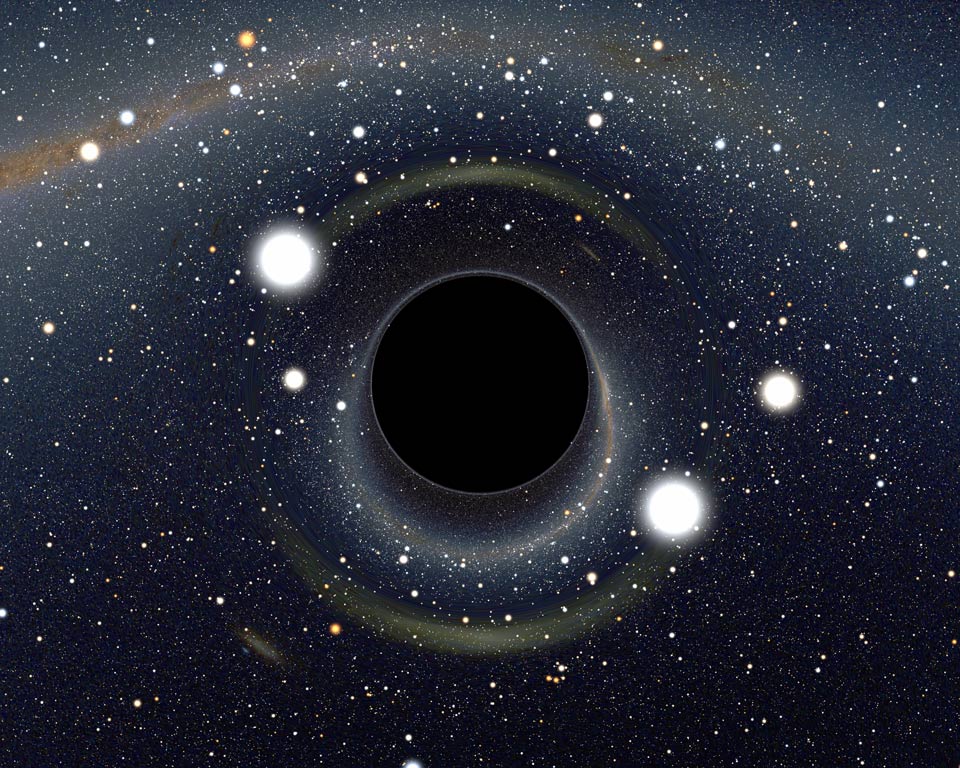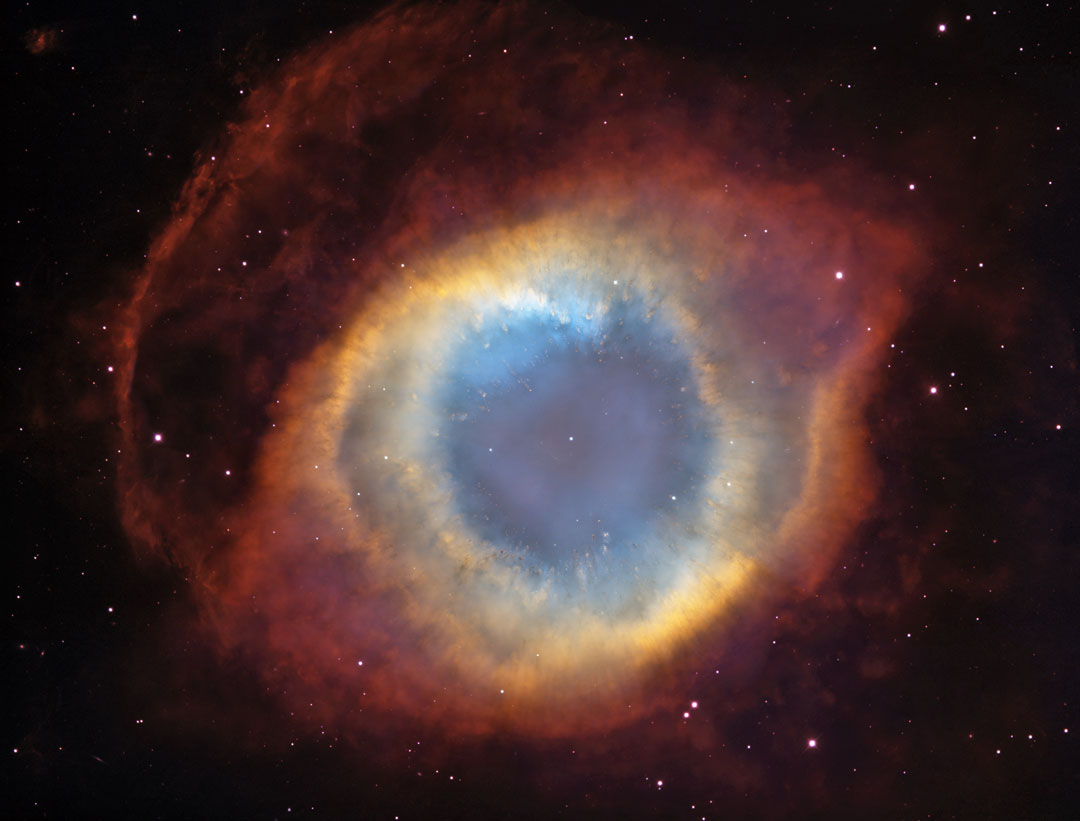 |
| Simulation of how a black hole might look. Image NASA APOD For a compact explanation of this magnificent image see the APOD page |
Stephen Hawking repeatedly saying that God does not exist does not require extensive academic studies of most demanding branches of modern Sciences such as, for example, Particle Physics, higher Mathematics, Astrophysics, Nuclear physics, Cosmology or Astronomy in general.
It is quite easy to say so without any higher education. In fact, we know that there were people in pre-scientific era who said so over two thousand years ago:
The fool hath said in his heart, There is no God.
Psalm 14:1
On the other hand, what does require extensive academic studies of the most demanding branches of modern Sciences such as, for example, Particle Physics, higher Mathematics, Astrophysics, Nuclear physics, Cosmology or Astronomy in general, is to describe God's work. For example, to discover and understand the weak radiation from a black hole, what is at the root of gravity or what exactly is the time-space continuum.
It is a hell of a job trying to figure out how the Universe works and especially how primitive and complex life has evolved on planet Earth creating wonders of Nature such as Stephen Hawking with his mind blowing ideas or that lucky combination of mutations called Daniel C. Dennett, who can see.
Formula 1 starting position
It is quite simple, really.
Statements about no God by professor Hawking and his ilk are not the results of the race, they are their starting position.
If the starting position is to reject any notion of God the Creator and to ignore what the God of Israel Himself tells about the Universe, there are not many alternatives left to the deep question Why? Is the meaning of life really 42?
If there is no Creator obviously the existing Universe and we living in it must the product of some anonymous processes guided by the Laws of Nature. Automation with no guiding thinking, design or particular purpose. There also must be some sort of engine that drives life against the Laws of Thermodynamics we have learned to respect ever since the Berlin School began to write about them. Let us call it Evolution, the Almighty genius of life!
It exists
If God does not exist we still exist, stupid. For an atheist that existence is a given fact and explains everything to a rational man. Look around, touch that stone, it is there. It is a fact. Saying anything religious about it is pure nonsense and a sickness that must be erased from humanity.
I am
Should our starting position in the race for knowledge and understanding rest in the God of Israel, things get very personal.
For His name is not "it exists" but "I am". (in Hebrew JHVH)
Exodus 3:14
Suddenly we have the freedom of scientific exploration and research and Philosophy and Religion in a Cosmos, that is ultimately One and ultimately Personal.
Of course we all know that the Jewish guy from God's chosen people, Albert Einstein, had difficulty with the concept of a personal God and even more so with His children. But he did talk about Him and did not just ignore the only real God there is.
So what's the difference
The difference between the foolish claim of human heart that there is no God and the listening to the God of Israel talking about things is in this personality of things that lacks from disbelief. Ii is in the deepest understanding of humanity in the Universe as reflecting its Maker that atheistic humanism lacks.
Deep down, a scientist figuring out God's works frequently praises Him for what he or she discovers and sees the meaning of One. It poses a healthy dose of humility on the brilliant human mind, made almost divine.
Almost.
When I consider your heavens,
the work of your fingers,
the moon and the stars,
which you have set in place,
what is mankind that you are mindful of them,
human beings that you care for them?Psalm 8:3 - 4
_________
ותחסרהו מעט מאלהים וכבוד והדר תעטרהו 5: 8

